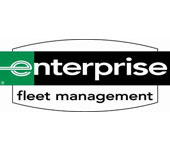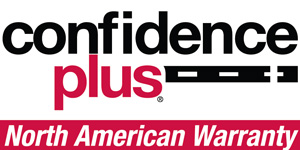Business Hours
- Monday - Friday
- BASHFORD AVE
7:30 AM - 4:30 PM
Phone: (502) 203-0454 - PRESTON HWY
7:00 AM - 4:00 PM
Phone: (502) 230-4279
AMERICAN BRAKE CENTERS INC.
(502) 203-0454 for Bashford Ave or (502) 230-4279 for the Preston Hwy location | 3435 Bashford Ave Ct Louisville, KY 40218
AUTONET TV
Archive for October 2021Have a Ball! Know your Ball Joints (Ball Joints)Posted October 31, 2021 9:50 AMWe all have joints in our own skeletal system, but did you know your vehicle has some joints of its own? One of the most important is called a ball joint. One of the interesting things is that it's somewhat similar to the ball and socket joints we have in our hips and shoulders. A ball joint allows two parts it joins together to move in more than one direction at the same time. Think about your wheels. They have to move up and down when there are bumps in the road but in sideways directions when you are making a turn. As you can see, the ball joints are important for your steering and handling to work correctly. Since ball joints do so much, they can wear out and become loose. When the ball wears down or the socket gets worn, there can be too much play in them. It can get so bad that the ball can come out of the socket and your wheel can fall off, a dangerous situation. Ball joints can also seize up. Some of them are sealed and never require maintenance; others require periodic lubrication. Here are some signs that your ball joints are going bad:
The earlier a failing ball joint is discovered, the better. The best way is to have regular inspections by a technician. Your service facility will periodically check ball joints at intervals recommended by the manufacturer. The cost to replace them can vary widely depending on whether you have a vehicle with a 2-ball or 4-ball configuration. Also, sometimes just the joints can be replaced, but other times they are part of a larger control arm assembly that has to have all the parts replaced at the same time. Your vehicle's proper steering, handling and tire wear all contribute to a better, safer driving experience. Make sure your ball joints are up to the job. American Brake Centers Inc. The American Brake Centers Inc. Guide to Proper Fluids for Your VehiclePosted October 24, 2021 8:40 AMThe automotive professionals at American Brake Centers Inc. would like to give Louisville drivers an update on some of the things happening in automotive fluids. You know, vehicles are becoming more sophisticated every day. Fluids such as, oil, coolant and transmission fluid are becoming more specialized at about the same pace. American Brake Centers Inc. It Pays to Take Care of Your Transmission at American Brake Centers Inc.Posted October 17, 2021 10:46 AMIf you've been paying attention, you've noticed that vehicle engines are getting more and more powerful in Louisville. At the same time, they are getting better and better fuel economy. I've gotta tell 'ya, most of that's because of technological advances in transmissions. To get a better understanding of why that is, let's talk bicycles. American Brake Centers Inc. The Engine Gets a Boost (Turbocharged Engine Maintenance)Posted October 10, 2021 8:03 AMIf someone told you that your vehicle could have the same power but with a smaller engine, wouldn't that sound like great idea? Just think, a smaller engine would save you money at the gas station and you'd still get the same horsepower. The technology to do just that has been around for a long time. It's called a turbocharger. Race cars and other performance vehicles have been using turbochargers for years. It gives them a power boost without the need of a bigger engine, saving them fuel and pit stops. Automakers have offered turbo gasoline and diesel engines for years, but there were problems with durability. Plus drivers had to make some driving adjustments with the way turbos delivered power. Newer turbos, though, have been vastly improved, and manufacturers are including them in more models. For example, Jeep offers its 2019 Cherokee with a choice of two engines that each make about 270 horsepower. One is a 4-cylinder turbocharged engine and the other is a 6-cylinder conventional gasoline engine. The general rule of thumb is: the fewer the cylinders, the better the fuel economy. A turbocharged vehicle uses a turbine that is turned by exhaust gas. That compresses air that goes into the engine, which then allows it to use more fuel per second, increasing power. One advantage of a turbo is that it is only engaged when the driver demands more power from the engine by stepping on the throttle harder. One thing to remember, though, is that turbocharged engines have additional parts and are more complex. That means they can be more expensive to maintain. The upside? You'll likely save fuel. Like any complex machine, it's important that you maintain your turbo vehicle so it will give you more years of service. American Brake Centers Inc. technicians are trained to inspect and service the systems associated with a turbo engine. If you already drive a turbocharged vehicle, keep up your regular maintenance schedule to get the longest life and performance out of it. Because of the advantages these powertrains offer, turbo engines are definitely here to stay. American Brake Centers Inc. A "Mounting" Problem (Motor Mounts)Posted October 3, 2021 12:21 PMYou know how heavy your engine and transmission are, so you can imagine how tough the parts that hold them onto your vehicle's sub-frame must be. Not only must they support the weight, they also have to isolate vibrations and noise from the passenger cabin. Pretty tall order, wouldn't you say? The parts that face that task daily are called the motor mounts, or engine mounts. They are usually made of rubber with steel brackets. Others contain a liquid for vibration and sound isolation. Most vehicles have three or four motor mounts, and while rubber or hydraulic liquids do a good job of damping the vibrations from the engine, they also have their limitations. The problem with rubber is that it gets old and brittle. Plus, if there's an oil leak anywhere in your engine and oil gets on the rubber motor mounts, rubber will deteriorate even more quickly. As for the liquid motor mounts, they can develop leaks and stop working. Here are signs a motor mount is going bad. You may hear a loud clunking or banging sound under the hood. That means the weight of the engine is shifting around enough to bang against other metal parts. You may feel bad vibrations, and the engine may feel like it's moving around in a strange way. When things get to that point, your vehicle can be damaged from that heavy engine knocking against things, and its time to replace one or more motor mounts. Schedule a visit to your vehicle service facility. There, a technician will assess your motor mounts; if one bad one is found, it's not unusual that others are likely to fail soon and should be replaced before they do. Because all vehicles are configured differently, some motor mounts are easily replaced. But others can be much trickier, take a lot longer and therefore are more expensive to replace. It's important for your engine's health to make sure motor mounts are sound and solid. You will maintain that quiet, vibration-free ride and could save your engine and transmission from major wear and tear. American Brake Centers Inc. | ||
SearchArchiveJune 2019 (18)July 2019 (4) August 2019 (4) September 2019 (5) October 2019 (4) November 2019 (4) December 2019 (5) January 2020 (5) February 2020 (4) March 2020 (5) April 2020 (4) May 2020 (5) June 2020 (4) July 2020 (4) August 2020 (5) September 2020 (4) October 2020 (4) November 2020 (5) December 2020 (4) January 2021 (6) February 2021 (4) March 2021 (4) April 2021 (4) May 2021 (5) June 2021 (4) July 2021 (4) August 2021 (5) September 2021 (4) October 2021 (5) November 2021 (4) December 2021 (4) January 2022 (6) February 2022 (4) March 2022 (4) April 2022 (4) May 2022 (5) June 2022 (4) July 2022 (5) August 2022 (4) September 2022 (4) October 2022 (5) November 2022 (4) December 2022 (4) January 2023 (5) February 2023 (4) March 2023 (4) April 2023 (5) May 2023 (4) June 2023 (4) July 2023 (5) August 2023 (4) September 2023 (4) October 2023 (5) November 2023 (4) December 2023 (5) January 2024 (5) February 2024 (4) March 2024 (5) April 2024 (4) May 2024 (4) June 2024 (5) July 2024 (4) August 2024 (4) September 2024 (5) October 2024 (4) November 2024 (4) December 2024 (5) January 2025 (4) February 2025 (4) March 2025 (5) | CategoriesWhat Customers Should Know (41)Fuel Economy (6)Tires and Wheels (1)Timing Belt (3)Fluids (3)Maintenance (7)Service Intervals (1)Alignment (4)Check Engine Light (4)Steering (4)Exhaust (5)Shocks & Struts (1)Air Conditioning (4)Brakes (10)Older Vehicles (1)Cooling System (3)Battery (3)Water Pump (1)Oil Change (5)Transmission (2)Tires (2)Customer Detective Work (1)Fuel Saving Tip: Slow Down (1)Fuel System (1)Auto Safety (3)Keys to a long lasting vehicle (2)Windshield Wipers (2)Alternator (2)Automotive News (1)TPMS (1)Headlamps (2)Service Standards (2)Cabin Air Filter (1)Fuel Pump (1)Winter Prep (2)Safety (2)Shocks and Struts (1)Drive Train (2)Inspection (3)Engine Air Filter (1)Dashboard (1)Spark Plugs (1) | |











